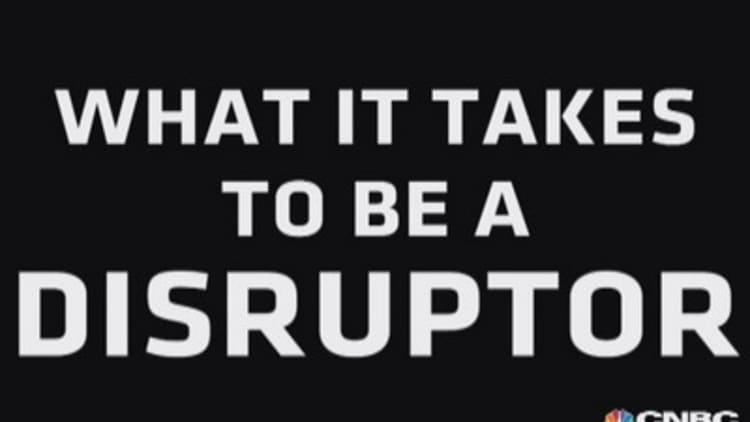
There are several key steps to success when it comes to disrupting business as we know it and delivering a new take that consumers have been waiting for, according to some of the members of the 2014 CNBC Disruptors 50 list.
A well-timed market entry is a vital part of disrupting the trajectory of any industry, according to some of those executives.
For document management company DocuSign, starting its business during a shift toward electronic documents from paper has been key, according to CEO Keith Krach. He said that ensuring his product's security and offering a quick return on investment have been vital selling points for consumers as well. And that includes DocuSign customers that one might assume stand to lose revenue because of of the firm: paper, printing and shipping companies.
"To quote one of the top executives of FedEx, anything that can be digital will be digital. So I think all these companies understand that, and that's why they're partnering with DocuSign," Krach said.
Timing isn't everything. Companies need to be targeting and effectively catering to the right markets.
"For disruptive opportunities, I generally look for large markets that are being ill-served today by the incumbents," said Scott Dietzen, CEO of Pure Storage, which makes enterprise data storage smaller and faster using flash memory as opposed to traditional hard drives.
Dietzen said that in addition to riding a sea change in an industry, having a way to deliver a product that's at least 10 times more valuable than what's already on the market, and working with a strong team are vital as well, "because only that combination of things can pull it off," Dietzen said.
Offering a product that's new and cheaper than competitors' products helps as well, according to Hardeep Walia, CEO of Motif Investing, a company whose investing "motifs" work like exchange-traded funds.
"A motif, which is a 30-stock basket you could buy at a traditional online broker, could cost you $300. It only costs us $9.95 and for us it's a high-margin business," Walia said. "We have advantages over traditional products in that we're transparent, customizable and definitely low cost, and that just gives you a lot of opportunity to compete on different fronts."
Read MoreCould the next 'worst-case-scenario investor' be you?
Over-delivering on promises is a plus as well.
"I think with any company that wants to be disruptive or just successful period, you have to start with your customer base and answer to what they want, and when you can answer their needs in a way that significantly exceeds their expectations and grows what they can do, particularly in a technology area, that allows you to be disruptive," said Nathan Kundtz, CEO of Kymeta, a satellite antenna technology company.
—By CNBC's Althea Chang





